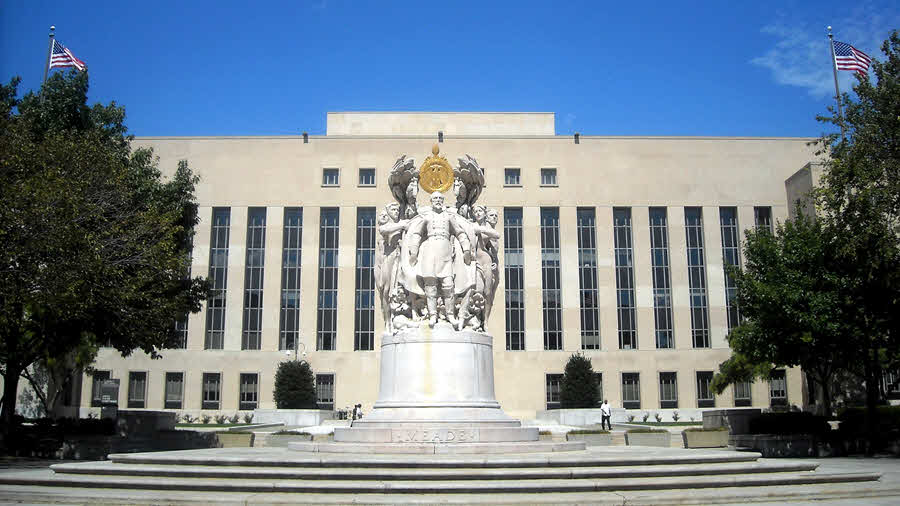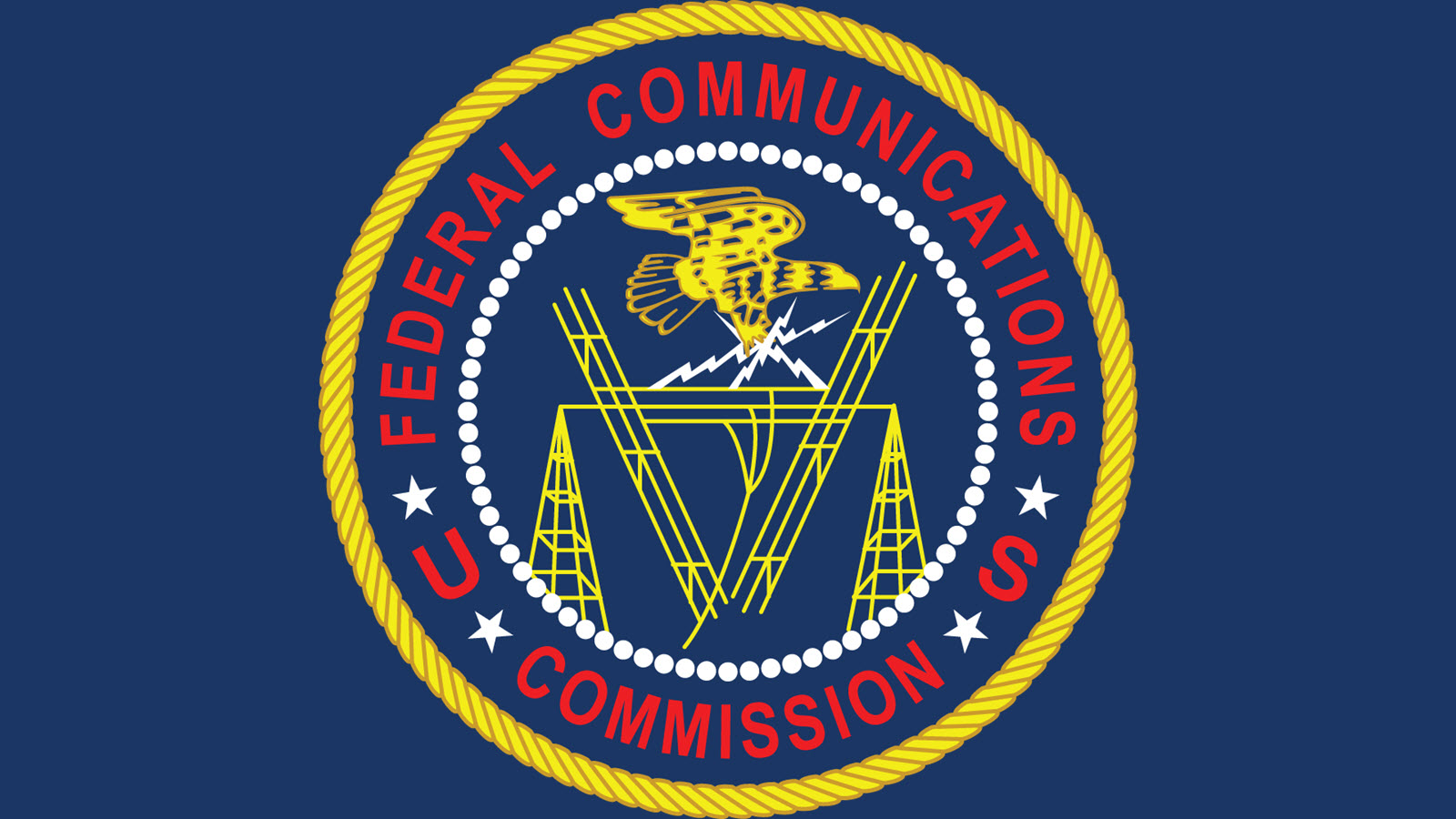Net Neutrality Oral Argument Shaping Up as Epic Battle

The smarter way to stay on top of the multichannel video marketplace. Sign up below.
You are now subscribed
Your newsletter sign-up was successful
The Feb. 1 oral argument in the legal challenge to the FCC's Restoring Internet Freedom (RIF) net neutrality rule deregulation order (the case is Mozilla Corp. V. FCC) is going to be an epic event, at least in terms of the time allotted for both sides to make their cases. It is the only case slated for argument that day.
It will also be streamed live on the court Web site, as has been the case with oral arguments in the circuit since last fall.
The FCC and those challenging its Restoring Internet Freedom order teamed up to jointly ask the court for 75 minutes apiece (with rebuttal time included), divided among various attorneys arguing different issues. The court accepted the proposal and, if past is prologue, the argument will be even longer than those two and a half hours--judges usually allow some flexibility in individual time allocations and push the time limits with their own questions.
By contrast to that 150 minutes, most arguments are only scheduled for between 20 minutes and an hour--though, again, often pushing beyond those limits, and the court usually gets through two or three cases in a morning.
A veteran attorney who has argued before the court called that 150-minute marathon "very rare, but not unprecedented."
The three-judge panel hearing the case comprises Judges Robert Wilkins, Patricia Millett and Stephen Williams, with Millett presiding.
While Judge Judith Rogers was initially to preside, she dropped off the panel, replaced by Wilkens. One difference between Rogers and Millett said a veteran attorney, is that while Rogers is pretty much a by-the-book stickler for holding the parties to their time limits, Millett is looser with those limits.
The smarter way to stay on top of the multichannel video marketplace. Sign up below.
Back in May 2017, Williams was one of three judges, and the senior judge among those, who denied a petition by ISPs and others for en banc (full court) review of the earlier three-judge panel decision that the FCC had reasonably defended its decision to reclassify ISPs as Title II common carriers in the 2015 Open Internet order.
Here, according to the U.S. Court of Appeals for the D.C. Circuit, is how the Mozilla v. FCC argument will play out beginning at 9:30 a.m. on Friday.
In this Corner: On one side are the petitioners--the companies and groups challenging the FCC order: Mozilla, Vimeo, Public Knowledge, Open Technology Institute, National Hispanic Media Coalition, NTCH, Benton Foundation, Free Press, Coalition for Internet Openness, Etsy, Ad Hoc Telecom Users Committee, Center for Democracy and Technology, INCOMPAS (the non-government petitioners); the States of New York, California, Connecticut, Delaware, Hawaii, Illinois, Iowa, Kentucky, Maine, Maryland, Massachusetts, Minnesota, Mississippi, New Jersey, New Mexico, North Carolina, Oregon, Pennsylvania, Rhode Island, Vermont, Virginia, Washington, the District of Columbia, the County of Santa Clara, Santa Clara County Central Fire Protection District, and the California Public Utilities Commission (the local government challenging the order). There are also intervenors, which are parties to the suit in support of the challenge.
In that corner: On the other side are the respondents--the FCC, Justice Department, and intervenors on its side, which includes major ISPs.
Non-governmental petitioners, Mozilla et al., will begin the argument, represented by Pantelis Michalopoulos of Michalopoulos, Steptoe & Johnson, who is a familiar face and voice on the pro-net neutrality rule side of the legal argument.
The first 25 minutes will be devoted to the argument that the FCC's reclassification of internet access as a Title I information service violates statutory language and was not a reasonable reading of the statute, the FCC's "disavowal" of other sources of regulatory authority, and its treatment of competition-related concerns related to the availability of internet access. He will get 25 minutes, though likely extended by judge questions during that argument.
That will be followed by 20 minutes of argument, again for the petitioners, by Kevin Russell, Goldstein & Russell. He will argue that it was illegal for the FCC to reclassify mobile broadband access as Title I.
Non-government intervenors then get five minutes, represented by Stephanie Weiner, Harris, Wiltshire & Grannis LLP.
“Mozilla filed this lawsuit because fighting for a free, open and competitive internet is part of our DNA,” said Denelle Dixon, COO of Mozilla, in a press call with reporters about the arguments. “Net neutrality is still an essential consumer protection that everyone online deserves, and this case is the fight to save it. We are confident that the FCC’s repeal lacks legal and factual support, and we look forward to having our case heard in court.”

Next come the government petitioners-all those states listed above will get their shot at the FCC order.
Danielle Goldstein, of the County of Santa Clara, Calif., will get 10 minutes to argue about the order's impact on public safety and government services.
Stephen Wu of the State of New York, will get 15 minutes to argue against the FCC order's preemption of state efforts to regulate net neutrality.
“The FCC's revocation of the net neutrality rules was unlawful – the FCC entirely ignored the requirement that it take the public safety risks of its actions into account,” said Santa Clara County Counsel James Williams Wednesday (Jan. 30). “Instead, the Commission's action allows the ISPs to pursue their economic interests even when at the expense of public safety. That’s an unacceptable prospect for key public safety service providers like the County of Santa Clara.”
The respondents--the FCC and the Justice Department--will get 60 minutes to make their case on all those issues, represented by FCC General Counsel Tom Johnson, followed by 15 minutes for the ISP intervenors in support of the FCC, represented by Jonathan Nuechterlein of Sidley Austin.
At a Free State Foundation event last fall, Johnson said he was confident in the FCC's argument. "While I would never want to predict the outcome of an appeal," he said, "it is always nice to have both the United States Supreme Court and the court of appeals on record saying that the federal agency you represent has discretion to make the very decision you are now defending....[I]f oral argument in this case were to adopt the rules of the classic TV game show 'Name That Tune,' I would say I could argue this case in two words: Brand X."
That is a reference to the 2005 Supreme Court decision (National Cable & Telecommunications Association v. Brand X Internet Services) upholding an earlier FCC's authority well over a decade ago to classify internet access services as information services not subject to mandatory access to their networks by competitors, concluding it should be accorded so called Chevron deference to that decision, which means the tendency to defer to an agency's expertise in interpreting an ambiguous statute.
“We are confident that the Restoring Internet Freedom Order will be upheld in court," said Matthew Berry, chief of staff to FCC chair Ajit Pai. "The U.S. Supreme Court has already affirmed the FCC’s authority to classify broadband as a Title I information service, and we have every reason to believe that the judiciary will uphold the FCC’s decision to return to that regulatory framework under which the Internet flourished prior to 2015 and is continuing to thrive today.”
In December 2017, a bitterly divided, Republican-controlled, FCC voted to approve the Restoring Internet Freedom order and eliminate most network-neutrality rules; reclassify ISPs, wired and wireless, as non-common carriers (no longer subject to Title II-based regulations); and deed most of the internet policing functions to the Federal Trade Commission or Justice Department.
Gone were the rules against blocking, throttling and paid prioritization adopted under the previous Democratic majority, as well as the internet conduct standard by which the FCC could review conduct not prohibited by those rules -- like zero-rating plans -- but that might adversely affect internet openness and access to content.
The item restored the FTC's authority over broadband regulation, and adopted a transparency rule that requires ISPs to let the government and web users know how they are managing their networks and what business practices they are using, which the FTC can enforce if those practices are unfair or deceptive or anticompetitive, and the Justice Department can enforce if they violate antitrust laws.
It is up to the court to decide if that latest regulatory take on net neutrality passes muster or whether the FCC must return to the drawing board once again.
Contributing editor John Eggerton has been an editor and/or writer on media regulation, legislation and policy for over four decades, including covering the FCC, FTC, Congress, the major media trade associations, and the federal courts. In addition to Multichannel News and Broadcasting + Cable, his work has appeared in Radio World, TV Technology, TV Fax, This Week in Consumer Electronics, Variety and the Encyclopedia Britannica.

